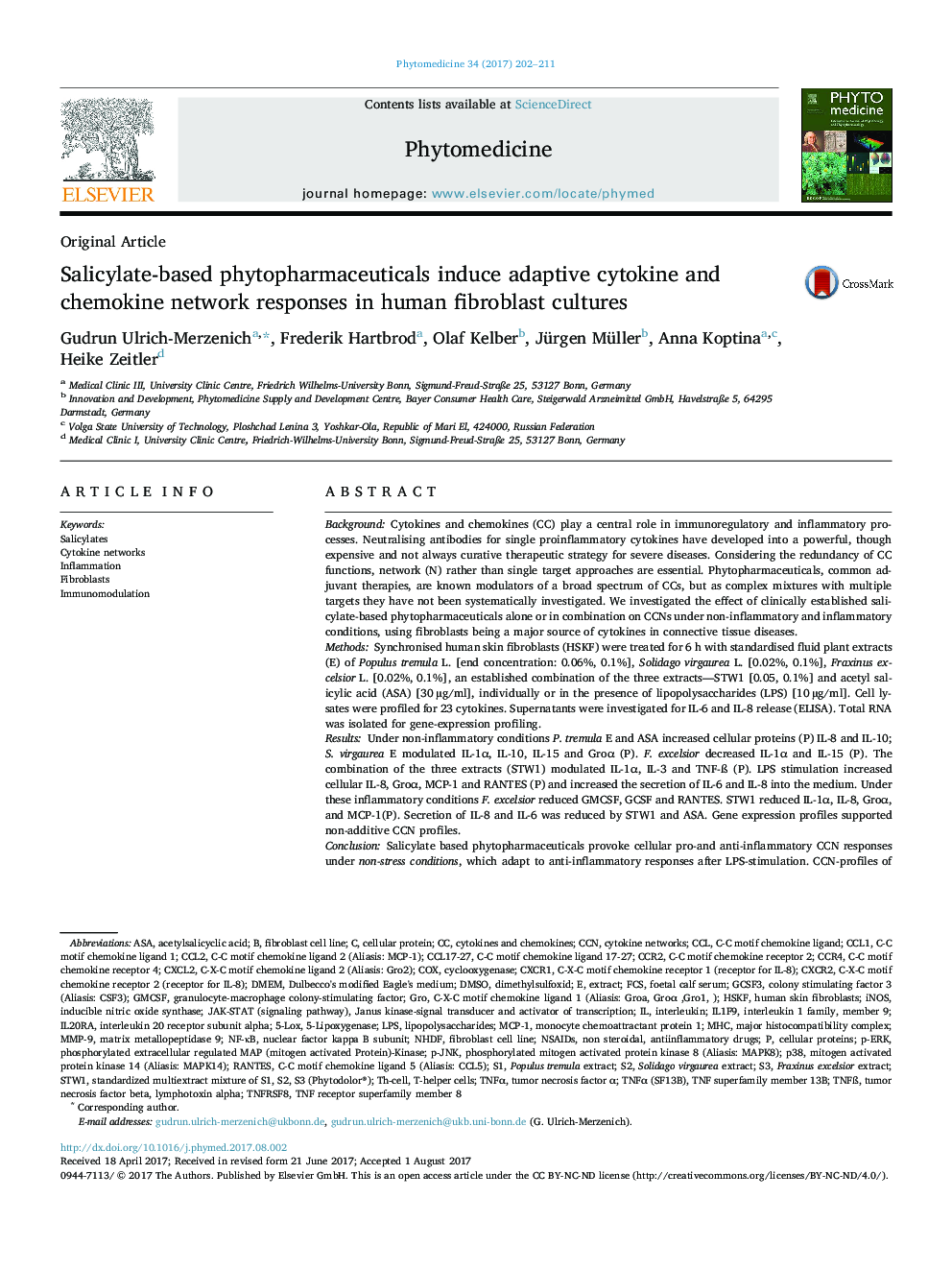| کد مقاله | کد نشریه | سال انتشار | مقاله انگلیسی | نسخه تمام متن |
|---|---|---|---|---|
| 5549306 | 1556685 | 2017 | 10 صفحه PDF | دانلود رایگان |
BackgroundCytokines and chemokines (CC) play a central role in immunoregulatory and inflammatory processes. Neutralising antibodies for single proinflammatory cytokines have developed into a powerful, though expensive and not always curative therapeutic strategy for severe diseases. Considering the redundancy of CC functions, network (N) rather than single target approaches are essential. Phytopharmaceuticals, common adjuvant therapies, are known modulators of a broad spectrum of CCs, but as complex mixtures with multiple targets they have not been systematically investigated. We investigated the effect of clinically established salicylate-based phytopharmaceuticals alone or in combination on CCNs under non-inflammatory and inflammatory conditions, using fibroblasts being a major source of cytokines in connective tissue diseases.MethodsSynchronised human skin fibroblasts (HSKF) were treated for 6 h with standardised fluid plant extracts (E) of Populus tremula L. [end concentration: 0.06%, 0.1%], Solidago virgaurea L. [0.02%, 0.1%], Fraxinus excelsior L. [0.02%, 0.1%], an established combination of the three extracts-STW1 [0.05, 0.1%] and acetyl salicylic acid (ASA) [30â¯Âµg/ml], individually or in the presence of lipopolysaccharides (LPS) [10â¯Âµg/ml]. Cell lysates were profiled for 23 cytokines. Supernatants were investigated for IL-6 and IL-8 release (ELISA). Total RNA was isolated for gene-expression profiling.ResultsUnder non-inflammatory conditions P. tremula E and ASA increased cellular proteins (P) IL-8 and IL-10; S. virgaurea E modulated IL-1α, IL-10, IL-15 and Groα (P). F. excelsior decreased IL-1α and IL-15 (P). The combination of the three extracts (STW1) modulated IL-1α, IL-3 and TNF-à (P). LPS stimulation increased cellular IL-8, Groα, MCP-1 and RANTES (P) and increased the secretion of IL-6 and IL-8 into the medium. Under these inflammatory conditions F. excelsior reduced GMCSF, GCSF and RANTES. STW1 reduced IL-1α, IL-8, Groα, and MCP-1(P). Secretion of IL-8 and IL-6 was reduced by STW1 and ASA. Gene expression profiles supported non-additive CCN profiles.ConclusionSalicylate based phytopharmaceuticals provoke cellular pro-and anti-inflammatory CCN responses under non-stress conditions, which adapt to anti-inflammatory responses after LPS-stimulation. CCN-profiles of the single extracts are not additives in combination. A simultaneous activation of cellular pro- and anti-inflammatory cytokines might heighten the immunological reactivity status of a cell.
In vitro studies of salicylate based phytopharmaceuticals on the cytokine release of human fibroblasts164
Journal: Phytomedicine - Volume 34, 15 October 2017, Pages 202-211
